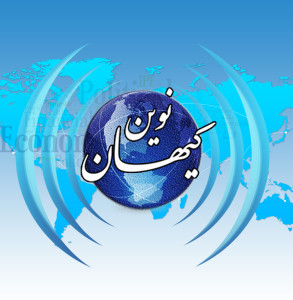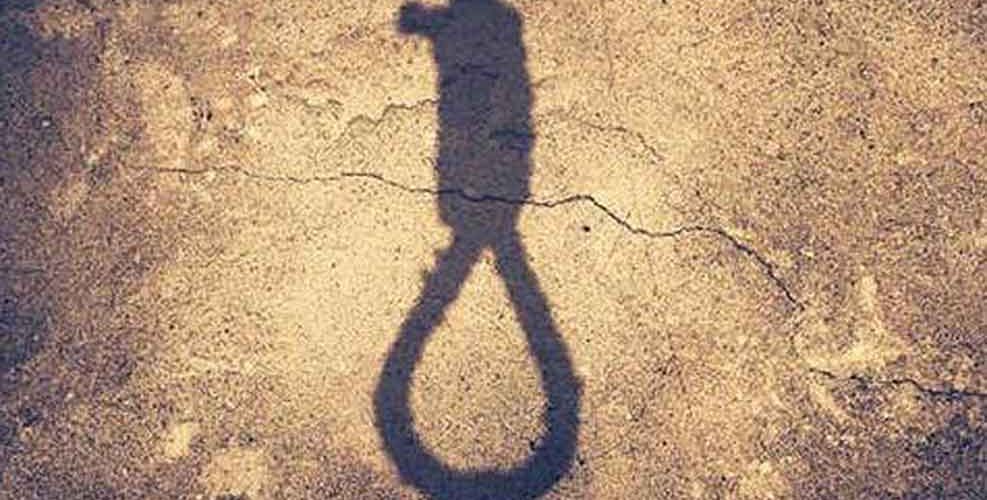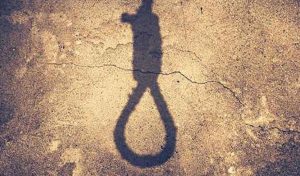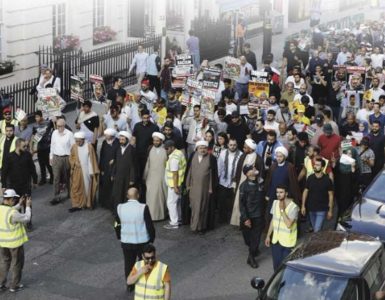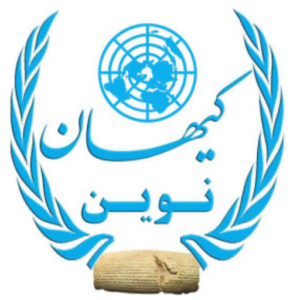جدیدترین آمارها از اعدام در جمهوری اسلامی نشان میدهد در یک دهه گذشته دستکم ۴۸۲۹ شهروند توسط دستگاه قضایی جمهوری اسلامی به دار آویخته شدند. در این مدت ۴۱ کودک اعدام شده و نیمی از شهروندان اعدام شده نیز متهمان مرتبط با جرائم مواد مخدر اعلام شدهاند.
The latest statistics on executions in the Islamic Republic show that at least 4,829 citizens were hanged by the judicial system of the Islamic Republic in the last decade. During this period, 41 children were executed and half of the executed citizens were declared accused of drug crimes.
کیهان نوین: قوه قضاییه جمهوری اسلامی در ده سال گذشته حکم اعدام ۴۸۲۹ ایرانی را اجرا کرده که از این تعداد ۴۱ نفر کودک و زیر سن قانونی بودهاند.
آمار اعدام در ایران در ماههای گذشته افزایش یافته و از نیمه اردیبهشتماه امسال بطور متوسط هر هفته ۱۰ شهروند در ایران اعدام میشوند.
سیستم قضایی با تخلفات گستردهای از جمله اعترافات اجباری، شکنجه، رفتار غیرانسانی و فقدان نمایندگی قانونی کافی روبروست.
خبرگزاری «هرانا» ارگان خبری مجموعه فعالان حقوق بشر در ایران، اعلام کرد قوه قضاییه جمهوری اسلامی در ده سال گذشته حکم اعدام ۴۸۲۹ ایرانی را اجرا کرده که از این تعداد بیش از ۴۰ نفر کودک و زیر سن قانونی بودهاند.
بر اساس این گزارش، در ده سال گذشته و حد فاصل سالهای ۲۰۱۳ تا ۲۰۲۳ در مجموع آمار ۴۸۲۹ مورد اجرای حکم اعدام در ایران توسط خبرگزاری «هرانا» جمعآوری شده است. اتهام ۲۱۹۶ تن از اعدامشدگان مرتبط با مواد مخدر بوده است. همچنین اکثر ادامشدگان مرد بودهاند.
این گزارش افزوده در این بازه زمانی ۴۱ کودک-مجرم نیز اعدام شدند که اتهام دستکم یکی از آنها مرتبط با مواد مخدر بود.
همچنین بر اساس گزارش دیگری که از سوی خبرگزاری «هرانا» منتشر شده، آمار اعدام در ایران در ماههای گذشته افزایش یافته و از نیمه اردیبهشتماه امسال و طی حدود ۱۰ هفته گذشته بطور متوسط هر هفته ۱۰ شهروند در ایران اعدام میشوند.
این گزارش افزوده که ایران یکی از کشورهای عضو میثاق بینالمللی حقوق مدنی و سیاسی (ICCPR) است که اکیدا تأکید میکند که مجازات اعدام باید تنها برای «جدیترین جنایات» اعمال شود و هرگونه انحراف از این اصل، نقض حق حیات تلقی می شود.
خبرگزاری «هرانا» تأکید کرده که پس از اصلاحاتی در قانون جزای مربوط به جرائم مواد مخدر در سال ۹۶-۹۷ از جمله افزایش حداقل میزان در اختیار داشتن مواد مخدر طبیعی و مصنوعی که منتهی به صدور اعدام میشد، باعث کاهش صدور حکم اعدام مرتبط با جرائم مواد مخدر شد. با این حال پس از یک وقفه، در سال های گذشته، اتهامات مربوط به مواد مخدر مجددا سهم قابل توجهی را به خود اختصاص داده است به حدی که ۴۰ تا ۶۰ درصد از کل اعدامها را شامل میشود.
در ادامه آمده که از سال ۲۰۱۸ تا ۲۰۲۰، سهم اعدام متهمان جرائم مواد مخدر هرگز از ۱۰ درصد از کل اجرای احکام فراتر نرفت. تحلیلهای متفاوتی پیرامون روند کوتاهمدت کاهش تعداد اعدامشدگان مرتبط با اتهامات مواد مخدر ارائه شده است. با این حال همانطور که اشاره شد این روند مثبت، تنها برای مدتی کوتاه ادامه داشت؛ پس از این وقفه حدود دوساله، اتهامات مربوط به مواد مخدر مجددا ۴۹/۲۰ درصد از کل اعدام ها را در سال ۲۰۲۱ تشکیل داد، روندی که کماکان ادامه دارد.
بر اساس این گزارش «بدیهی است که هرگونه حکم اعدام برای اتهامات مرتبط با مواد مخدر که جزو «جدیترین جنایات» قلمداد نمیشوند نقض آشکار حق حیات است.»
اسکایلر تامپسون مدیر حمایت و پاسخگویی جهانی در مجموعه فعالان حقوق بشر در ایران نیز در رابطه با شمار رو به افزایش اعدام در ایران گفته که «تداوم چنین اعدامهایی، به ویژه زمانی که محاکمهها با نقض روند دادرسی خدشهدار میشوند، عمیقا نگران کننده است. ایران باید فورا تمام اعدامها را با هدف لغو مجازات اعدام بدون هیچ پیششرطی متوقف کند.»
در بخش دیگری از این گزارش آمده که سیستم قضایی ایران با تخلفات متعددی در رویه قضایی مواجه است. این تخلفات شامل اعترافات اجباری، شکنجه، رفتار غیرانسانی و فقدان نمایندگی قانونی کافی برای پرداختن به موارد مختلف است. غالبا قضات و دادستان هایی که در نقض شدید حق زندگی دخالت دارند، با مصونیت مطلق عمل می کنند.
این گزارش همچنین نام شماری از مقامات قضایی دخیل در صدور و اجرای احکام اعدام را منتشر کرده است:
فرجالله کارگر، دادستان و قاضی در استان کرمان
سید مصطفی محمودی مقدم، رئیس دادگاه انقلاب و قاضی در شهر یاسوج مرکز استان کهگلویه و بویر احمد
محمد کریمی، دادستان عمومی و انقلاب شهر ساری مرکز استان مازندران
محمدرضا عموزاد، قاضی مستشاری شعبه ۱۵، و رئیس و قاضی شعبه ۲۸ دادگاه انقلاب اسلامی تهران
اسدالله جعفری، دادستان عمومی و انقلاب ساری و رئیس کل دادگستری استان خراسان شمالی
حیدر آسیابی، دادستان عمومی و انقلاب سمنان و دادستان عمومی و انقلاب فارس
محمد ولی عبدالهی، دادستان عمومی و انقلاب استان خراسان جنوبی
سلمان آدینهوند، فرماندهی یگان امداد انتظامی تهران
احمد قربانی، رئیس دادگاه انقلاب اسلامی کرمان
محسن نیک ورز، دادستان عمومی و انقلاب شهرستان سیرجان در استان کرمان
سید علی زارع نوری، دادستان عمومی و انقلاب شهر نجف آباد در استان اصفهان
یدالله موحد، دادستان عمومی و انقلاب استان کرمان و رئیس کل دادگستری استان کرمان
New Universe:
In the last ten years, the judiciary of the Islamic Republic has executed 4,829 Iranians, of which 41 were children and minors.
– The number of executions in Iran has increased in the past months and since the middle of May this year, an average of 10 citizens have been executed in Iran every week.
– The judicial system faces widespread violations, including forced confessions, torture, inhumane treatment, and lack of adequate legal representation.
“Harana” news agency, the news organ of the group of human rights activists in Iran, announced that the judiciary of the Islamic Republic of Iran executed 4,829 Iranians in the last ten years, of which more than 40 were children and minors.
According to this report, in the last ten years between 2013 and 2023, a total of 4,829 death sentence executions in Iran have been collected by “Harana” news agency. 2196 of the executed people were charged with drug related charges. Also, most of the executed were men.
This report added that 41 child-criminals were also executed during this period, at least one of them was charged with drugs.
Comparison of drug-related execution statistics compared to total executions in each year
Also, according to another report published by “Harana” news agency, the number of executions in Iran has increased in the past months, and since the middle of May this year and for the past 10 weeks, an average of 10 citizens have been executed in Iran every week.
This report added that Iran is one of the member countries of the International Covenant on Civil and Political Rights (ICCPR), which strongly emphasizes that the death penalty should be applied only to the “most serious crimes” and any deviation from this principle is considered a violation of the right to life.
“Harana” news agency emphasized that after reforms in the criminal law related to drug crimes in 2016-2017, including increasing the minimum amount of possession of natural and synthetic drugs that led to the death penalty, the death sentence related to drug crimes decreased. However, after a hiatus, in recent years, drug-related charges have again taken a significant share, accounting for 40-60% of all executions.
It is further stated that from 2018 to 2020, the share of executions of those accused of drug crimes never exceeded 10% of the total execution of sentences. Different analyzes have been presented regarding the short-term trend of decreasing the number of executed people related to drug charges. However, as mentioned, this positive trend only lasted for a short time; After a two-year hiatus, drug-related charges again accounted for 20.49 percent of all executions in 2021, a trend that continues.
According to this report, “it is obvious that any death sentence for drug-related charges that are not considered among the most serious crimes is a clear violation of the right to life.”
Skylar Thompson, Director of Global Support and Accountability at Human Rights Activists in Iran, also said regarding the increasing number of executions in Iran that “the continuation of such executions, especially when trials are marred by violations of the due process, is deeply worrying. “Iran must immediately stop all executions with the aim of abolishing the death penalty without any preconditions.”
In another part of this report, it is stated that Iran’s judicial system is facing numerous violations in judicial procedure. These violations include forced confessions, torture, inhumane treatment, and lack of adequate legal representation to address various cases. Judges and prosecutors who are involved in serious violations of the right to life often act with absolute immunity.
This report has also published the names of judicial authorities involved in the issuance and execution of death sentences:
Farajullah Kargar, prosecutor and judge in Kerman province
Seyyed Mostafa Mahmoudi Moghadam, head of the Revolutionary Court and judge in Yasouj city, the capital of Kohgluye province, and Boyer Ahmad
Mohammad Karimi, public and revolutionary prosecutor of Sari, the capital of Mazandaran province
Mohammad Reza Amouzad, Advisory Judge of Branch 15, and Chief and Judge of Branch 28 of Tehran Islamic Revolution Court
Asadollah Jafari, General and Revolutionary Prosecutor of Sari and Chief Justice of North Khorasan Province
Haider Asiabi, Public Prosecutor and Revolution of Semnan and Public Prosecutor and Revolution of Fars
Mohammad Wali Abdulahi, General and Revolutionary Prosecutor of South Khorasan Province
Salman Adinevand, commander of the Tehran Police Relief Unit
Ahmad Ghorbani, head of Kerman Islamic Revolutionary Court
Mohsen Nik Varez, public and revolutionary prosecutor of Sirjan city in Kerman province
Seyed Ali Zare Nouri, public and revolutionary prosecutor of Najaf Abad city in Isfahan province
Yadullah Mohad, General and Revolutionary Prosecutor of Kerman Province and Chief Justice of Kerman Province

